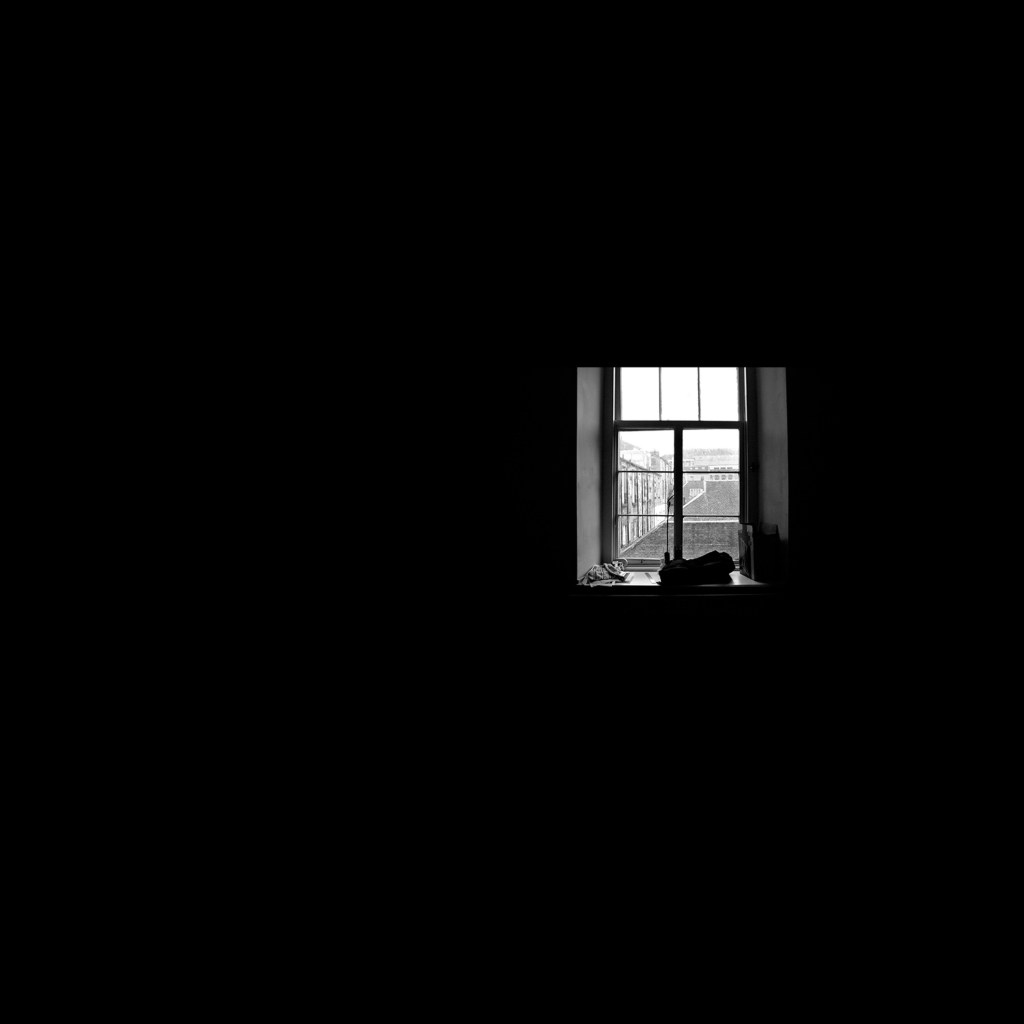
Ajahn Amaro
Continued selected excerpts from Chapter 5, “Small Boat, Great Mountain,” a free Dhamma publication available as PDF EPUB MOBI. Link at the end of the text.
I was a very zealous young monk. And, although my mind was often extremely busy and all over the place, after three or four years of monastic training, I found that meditation came quite easily to me and that I could attain quite strong states of concentration. This was also the early years of our community in England, when Ajahn Sumedho would be giving two or three Dharma talks a day and it seemed like there was a constant stream of high wisdom. It was a very inspired time. There was a feeling that enlightenment was just so close, that it was an obvious reality. It was just a matter of cutting through the last few defilements and, boom! It would all be there.
We developed a tradition of having a winter retreat during the cold, dark months of January and February. About three weeks into one of these early retreats, I was working very diligently and was extremely focused on the meditation. I wasn’t talking to anyone or looking at anything. Every lunar quarter we would have an all-night meditation vigil. This was the full moon in January. I was really charged up and was convinced, “Okay, tonight’s the night.” It was a crystal-clear evening in the middle of an English winter. There were brilliant stars in the sky, and the full moon was blazing brightly. I really had the juice going. We came to the evening sitting, did the chanting, listened to the Dharma talk, and so forth, and then, once those were over, the rest of the night was open—just walking and sitting meditation, as one chose.
So, I’m sitting there with a very bright and clear mind and this thought keeps floating in, “Any minute now, any second now.” We all know that one: “Left a bit, right a bit, okay, now relax a bit, straighten up a bit, looking good, okay, hold steady, don’t do anything, all right, all right.” It’s very familiar terrain to everyone, I’m sure.
This was going on for hours. My mind was getting more and more energised, brighter and brighter, cutting through defilements and obscurations left and right. The clues were getting more and more prolific, like: “Something big is about to happen.” At about two in the morning, noises began to filter into my consciousness: thump, thump, thump, rumble, rumble, rumble, doors opening and closing, heavy footsteps in the hallway. I thought, “Shoes in the hallway? Who’s wearing shoes in the hallway?” Thump, thump. “What’s going on out there?” As you can tell, there was a little interference to my enlightenment program. But I decided just to ignore it, telling myself, “It’s only a noise [humming]. Just me and the moon humming our way to nibbāna.” Even though I tried my best to ignore the noise, I then noticed there was a presence in front of me. I opened my eyes. One of the monks was leaning down and saying, “Um, could you come outside for a moment?” And my first thought was, “What do you mean, ‘come outside’? This is my big night. I’m busy.” I resisted the impulse to act out my thoughts, left the room, and found policemen in the hall. “Police? What’s going on here?”
What had transpired was that one of the novices, a very erratic young man called Robert, had got himself into some trouble. All the meditation during the winter retreat, coupled with never having done that kind of concentrated practice before, could send many people to the wrong side of the border. Young Robert not only had gone over the border but had traveled many miles. He also had emptied the petty cash box before leaving. Down at the local pub, Robert had bought everybody drinks and was discoursing to the entire assembly. Because he was in a slightly crazy but hyperlucid state, he also found he now could read people’s minds. He was eyeballing people in the pub and saying, “You’re doing this and you’re thinking that; I know what you’re up to.” So, people were seriously freaking out. Remember, this was England, and English village life really isn’t ready for shaven-headed young men in white coming into the sanctity of the local pub, offering gifts, and revealing people’s inner secrets. The English really are not very good at revealing secrets in the best of times. But to have someone behave so strangely and to divulge people’s thoughts was distinctly unacceptable. So, they called the law. The police, with equally great English common sense and compassion, understood this fellow was a little bit off and brought him back to the monastery. By then he really had lost it. He started raving and ranting, saying he wanted to kill himself.
The monk standing above me said: “Robert’s in deep trouble. He’s in a very weird state and wants to throw himself in the lake. Can you go help him? You’re the only one who can do it.” This was true. Because I was one of the most junior members of the Sangha, like him, I had been quite close to this novice and was one of the few people in the community who could relate to him at all.
At the time, Robert was living in a kutī in the forest. Most of the community lived either in the main house or at the nuns’ cottage, and the kutī in the forest was about a half-hour walk away. Part of my mind was going, “ut, but, but, look, this is my big “enlightenment night.” And so, my first impulse was to say, “Not tonight.” But then something in me said, “Don’t be stupid, go, you have no choice.” So, they loaded me up with thermoses of hot chocolate, candies, and other allowable goodies that monastics can have at that hour, and I went charging up to the woods. To cut a long story short, I spent the next three hours or so in his company drinking tea and cocoa and trying to talk him down. I let him talk and talk and talk and talk and talk. Finally, he exhausted himself, and around dawn he wanted to sleep. I realised he was okay and knew he was not going to do anything stupid. So, I left him and set off back to the house.
I was charging down the hill when I suddenly thought, “What’s the hurry? Why am I racing?” I slowed down and slowed down and finally I just stopped and looked up. There was the full moon setting on the other side of the lake. And then, all of the voices that had been going on in my mind during the first part of the night started coming back to me: “Any minute now. This is my big night. I’m really going places.” And it also came to me that, throughout that entire scenario, I hadn’t for one second thought about anyone but me—me and my enlightenment program, me awakening, me getting liberated. I realised I hadn’t had a vestige of concern for practicing for anyone else’s benefit. I felt about this small. [Holds finger and thumb a quarter inch apart.] How could I have been so incredibly stupid?
Just through having been in the presence of one suffering being, I could now see how my attention while meditating had shrunk so much that all other beings had been completely shut out. What started with a good intention—wanting to develop spiritually and be liberated, which seemed like the finest thing anyone could do with a life—had narrowed, narrowed, and narrowed until it became a matter of me winning the big prize. The incredibly shallow motivation of my practice was revealed. I wondered, “What was all that effort really for?”
It then struck me deeply how important the altruistic principle is. For even though one might be doing a lot of inner work and developing very good qualities and skilful means, that kind of neglect of others undermines the true purpose of our practice. Other beings aren’t just a token reference. Our community used to chant the “Sharing of Blessings” every day, and it was only after this incident that I realised, “Oh, real people really suffering. Oh, right, real people . . . oh.”
Having been so close to Robert when my mind was in a very alert and sensitive state, this notion of practicing for the benefit of all beings really sank in. From that time on, I started paying a lot more attention to the whole element of altruism and to consciously bringing in a concern for other beings. This wasn’t just a concept. I really internalized it.
At that time, many of the Mahāyāna teachings started to make considerably more sense to me. I saw how that narrowing emphasis on enlightenment for the individual had become one of the driving spirits behind what I was doing. Through that “personal enlightenment” perspective, the mind naturally starts to drift towards a neglect of the greater picture.

Click on this link for the source:
https://www.abhayagiri.org/books/423-small-boat-great-mountain

Very thought-provoking post. Good to know even monks have struggles to deal with. Gives hope.
The effort involved means he arrives at the conclusion by way of something we can all understand
Gem of wisdom by Ajahn Amaro .In the quest for enlightenment we should never forget Mindfulness and compassionate intention in the here and now . Thank you 🙏
Gratitude to Ajahn Amaro for the ability to articulate the difference between Theravada and Mahayana Teachings and their coming together
Interesting and inspiring.
I’m glad you found it helpful.